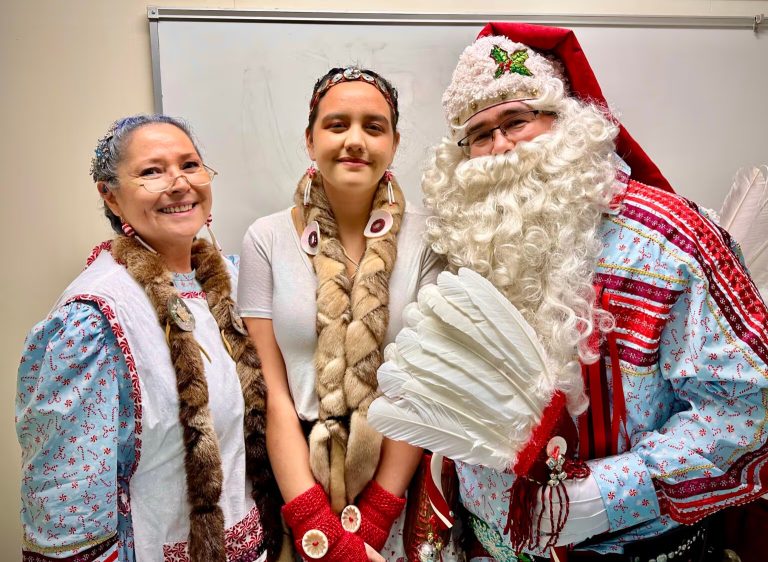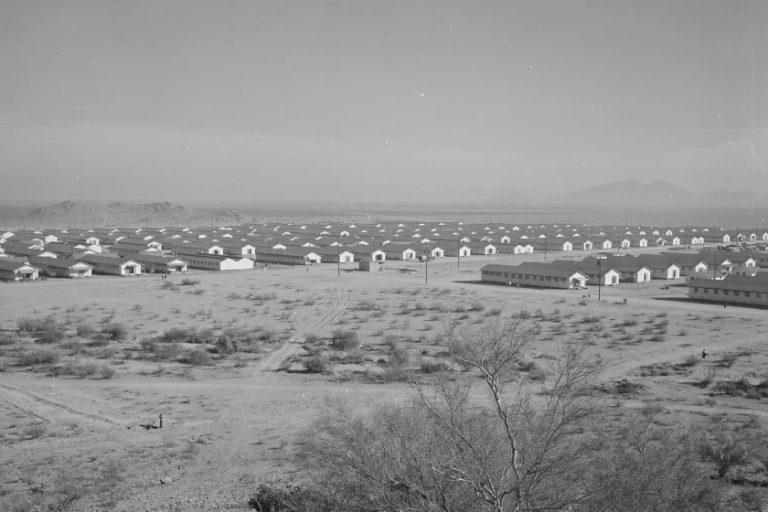Podcast: Play in new window | Download | Embed
King Charles has now had his official coronation as the British monarch. But a couple of days before the ceremony he met with several of Canada’s Indigenous leaders.
More from Dan Karpenchuk.
The audience at Buckingham Palace included the national chief of the Assembly of First Nations, Roseanne Archibald, the Métis National Council president Cassidy Caron, and the president of the Inuit Tapiriit Kanatami, Natan Obed.
The three along with governor general Mary Simon attended the coronation on Saturday.
Simon is the king’s representative in Canada and the first Indigenous governor general.
She said that Charles appeared to be committed to reconciliation during his meeting with Indigenous leaders.
The meeting lasted for about an hour and focused on Native issues, but also included conversations about the environment, repatriating cultural items from British museums, and missing and murdered Indigenous women.
Inuit leader Natan Obed said he talked to Charles about shared priorities as well as the responsibilities of the crown.
“I invited him to Inuit Inuvik to learn more not only about the government, but the issues we face – the environment, climate change, mental health, education and just continue on the conversation. Ultimately, where we could have shared priorities.”
There have been calls, in the past, for the British monarchy to apologize for the wrongs of its colonial legacy. But the Indigenous leaders said their meeting was more about building a positive relationship that could set the stage for tougher future talks.
The king had met with Canadian Indigenous leaders a year ago during a visit to Canada.
In a speech in the far north, he said he was deeply moved by stories from residential school survivors he had met.
 A blow to the largest Native organization in Alaska, as Rhonda McBride from our flagship station KNBA reports.
A blow to the largest Native organization in Alaska, as Rhonda McBride from our flagship station KNBA reports.
Two major tribal organizations have pulled out of the Alaska Federation of Natives – the Central Council of the Tlingit and Haida Indian Tribes and the Tanana Chiefs Conference.
AFN was formed to fight for land claims more than a half century ago and has continued to serve as a powerful voice for Alaska Natives in both state and national politics.
Every October, it holds the state’s largest convention. But in a statement, Richard Peterson, President of Tlingit and Haida, said the tribe no longer needs AFN’s advocacy and has developed its own capacity to advance its causes.
Tlingit and Haida says it is the largest federally recognized tribe in Alaska, representing 35-thousand members in Southeast Alaska.
The Tanana Chiefs Conference, which represents villages in Interior Alaska, also issued a statement.
It said it was ending its membership with AFN to focus on salmon protection.
It said numerous resolutions have been passed at AFN over the years to protect the Alaska Native subsistence lifestyle, with little action. AFN is made up of both tribes and Native corporations, formed after the passage of the Alaska Native Claims Settlement Act.
 Its president Julie Kitka told the Anchorage Daily News she would withhold comment until after AFN’s board meeting next week.
Its president Julie Kitka told the Anchorage Daily News she would withhold comment until after AFN’s board meeting next week.
In the last three years, disputes between regions have arisen during AFN’s annual convention.
Three regional corporations have since pulled out of AFN – the Arctic Slope Regional Corporation, Doyon and the Aleut Corporation.
ASRC is the state’s wealthiest private corporation. Doyon is Alaska’s largest land owner.
 U.S. Rep. Raul Grijalva (D-AZ), the House Natural Resources Committee Ranking Member, hosted a discussion on the history and significance of the Indian Child Welfare Act.
U.S. Rep. Raul Grijalva (D-AZ), the House Natural Resources Committee Ranking Member, hosted a discussion on the history and significance of the Indian Child Welfare Act.
Tuesday’s roundtable was held as ICWA is being challenged in the U.S. Supreme Court.
The decades old law is intended to keep Native children with Native families.
The virtual roundtable featured advocates, law experts, and a tribal leader.
Get National Native News delivered to your inbox daily. Sign up for our newsletter today.




Great move, the tribes in Alaska have fought with a great deal of resources and funds to confirm the federal laws that directly express the right of Alaska Natives to practice subsistence in preference over all other users. The State of Alaska has repeatedly fought any recognition of subsistence even though the US Supreme Court in Katie John v Norton has ruled in favor of subsistence rights of Alaska Natives and in their findings required the State of Alaska to make the necessary changes to abide by the supreme court. With AFN refusing to act on crys of tribes to support the fight for subsistence of it’s Alaska Native people, tribes have no choice but to withdraw their political and economic support of AFN and direct that support to directly fighting the good fight.